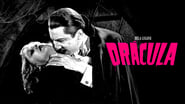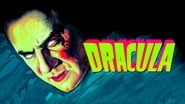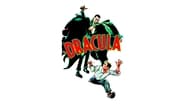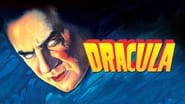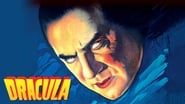ElMaruecan82
What a great year to go to the movie! Indeed, everyone elevates 1939 as the golden year of Golden Age Hollywood but what a glorious start the film industry had with the talkies. In 1931, you had the birth of two Warner Bros gangster icons Jimmy Cagney and Edward G. Robinson that people went to see, see? Silent movies resisted with a final masterpiece from Charlie Chaplin. French cinema saw the birth of Jean Renoir's talent and Marcel Pagnol's Marseilles trilogy brought the first French icon: Raimu, a man with an accent, but the greatest legacy would be owed to Universal and their "monster" creatures. I grew up drawing Dracula, Frankenstein and Mummies ignoring that they were all pretty much born the same year... not the myths, but their iconic perception.1931 was a milestone on the field of horror movies, think about it, "Frankenstein" and the iconic "It's alive!" moment, the Fredric March version of "Dr. Jekyll and Mr. Hyde", that earned the actor one of the first Oscar nomination for playing split personalities. And of course, there's Count Dracula, played by Bela Lugosi, the egomaniac Hungarian who earned Martin Landau an Oscar for his unforgettable performance in "Ed Wood". And, If the film doesn't really revolutionize the horror gothic genre because one should give F.W. Murnau's "Nosferatu" the credit he deserves, it was still a game-changer in the way It portrayed the iconic villain, I mentioned Robinson, Cagney, Raimu, guess what they all had in common? An accent. And it's all the more fitting that another iconic character would have one, too.One digression about Murnau though, I read that Todd Browning was so distraught by the tragic untimely loss of the director that he didn't put all his heart in "Dracula" and left cinematographer Karl Freund lead the show. I don't know if it did really affect the movie but I noticed that as far as directing goes, the film has the right atmosphere but nothing new since "Nosferatu" and the best parts seem rather stagey, it isn't surprising since it was based from a play loosely based from Bram Stroker's "Dracula". That's just to say, as much as there's no ace card in the directing, there's no particular flaw either. I guess Browning's directing was more tangible in his 1932's classic "Freaks" but for "Dracula", the key is Bela Lugosi. His performance makes the film.Indeed, it's almost the performance of Lugosi that provides all the eerie atmosphere the film needed, so was Nosferatu but in 1922, his 'presence' was enough, in 1931, the audience was thriving for a performance as well as a presence. And there's something in this Dracula that satisfies whatever needs the talkies created, the villain talks and the way he talks says something about the threats he incarnates. On that level, his speech mannerism is as crucial as Robison or Cagney's street smart slang, his accent and tendency to speak slowly, leaving a bit of suspense between crucial words, this Dracula is even more menacing than a monster because he can catch us off guard."For one who didn't live a single lifetime... you're a wise man. Van Helsing"
"I never drink.... Wine. "All the dots mark a long pause, and each pause is enriched by a rich palette of smiles and death glares. These are lines as classic as the "children of the night" but they belong to posterity because they're spoken in a context where suavity and vileness weren't as obvious as they are today. There is something suggested even in Lugosi's appearance, the way he stares, the way he walks, indicating an inner nobility and sophistication, notice how the well-spoken Renfield (Dwight Frye) becomes totally devoted to his master, as if he was drawn to him, to his aura. Even the murders look like a sort of emotional fusion, an erotic trance. We just believe such a power can exist because it works on a cinematic level, almost romantic.It's also interesting that the film uses ordinary, if not uncharismatic, actors (except for Edward Von Sloan who also starred in "Frankenstein") to be the match to Dracula, no cockiness or arrogance, Dracula is dealt with as real people would do and it's a real departure from the usual theatricality, apart from Dwight Frye who tends to overact a little, almost undermining the film's seriousness. Still, there's a lot of talking and even in Dracula's absence you can feel his presence, even the anticlimactic defeat leaves you doubt about his fate because you can't believe a monster like this could let himself be defeated. We don't root for the villain in the sense that we wish him to survive but he's so grand, so noble and so cinematically appealing that we sort of "side with him".Five decades before Hans Gruber, Lugosi invented the charismatic and sophisticated villain with an accent, and what an accent! The same year, Peter Lorre was another seminal "foreign" villain in "M" but his sordid gargoyle-like look and his crimes couldn't make him appealing, pathetic at best. I said in my review of "The Man Who Knew Too Much", the original, that Lorre was like a precursor of Gruber, but maybe he was inspired by Lugosi's performance in "Dracula".Dracula has a sort of divine aura accentuating his scariness. This is a villain that means business and if the film doesn't scare much, there's the performance. I said that "Nosferatu" was a presence, but this Dracula is a performance... and a presence as well.
hayleygorman-43033
If there was to be a list of the most influential and well-loved films of all time, 1931's Dracula would very certainly be on it, if not near the very top. The main thing that sticks out in my mind is the atmosphere; the lack of music or background noise. Somehow, the lack of atmospheric sound makes for a wonderfully unnerving and creepy feeling. The acting is also well done, an oozingly charming but disconcerting Dracula and a manic and crazed Renfield, where much of the acting is expressed through the face, excellently portrayed in the latter. The lack of any actual blood or biting forces the terror to be explained verbally or seen through the characters and their actions, which actually heightens the experience of fearing the vampire man himself. A film that has lived on through history and seen countless retellings and reiterations, truly a film that has had and will have immense effect and influence over movies and for a long time.







